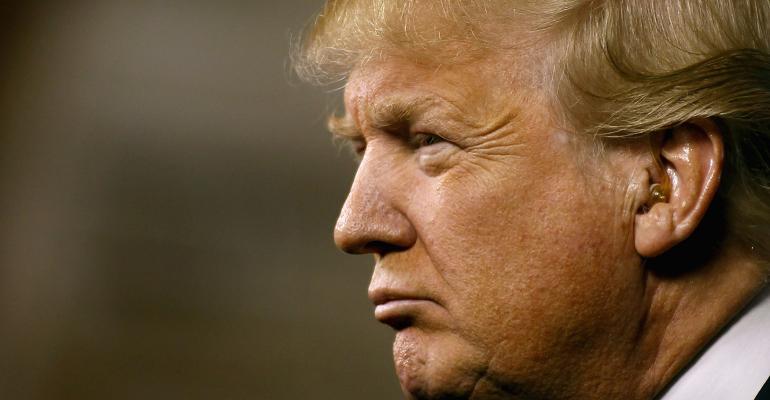Donald Trump is infamous for his willingness to litigate anything and everything, so it’s little surprise that he was involved in a dispute over his father's will, nor that it ultimately took an extreme turn. But in this case, he wasn’t the one doing the disputing, rather it was the children of his older brother, Freddy.
Freddy Trump was a talented pilot, an alcoholic and by all accounts the black sheep of the family. While Donald was ambitious and upwardly mobile like their father, Freddy was, according to family members, much more of a free spirit. Freddy married a stewardess at age 23 and had two children before his demons caught up with him and he passed in 1981.
Fast forward nearly twenty years to the funeral of their father Fred Trump Senior; one of Freddy's children, Fred III, gives the eulogy. Later that same night, Fred III’s wife gave birth to a baby that has cerebral palsy. In a moment of familial support, the rest of the Trump clan pledged to pay the unfortunate child’s medical bills.
The solidarity was short lived; soon after, Fred Sr.’s will was read and the family learned the fortune would be split between three of his four children, excluding Freddy. Predictably, Freddy’s children were outraged and challenged the will, alleging that Donald, who helped draft it, and his siblings had coerced Fred Sr. (who suffered from dementia late in life) to cut their father off. The children further alleged that a previous version of the will existed that included them. Donald responded by cutting off the family funding of Fred III’s sick child’s medical expenses.
“I was angry because they sued,” Trump said in a recent interview with The New York Times. He also noted that Freddy’s children were excluded from the will because of Fred Sr.’s “intense dislike” of their mother. Ultimately, according to Donald, the issue was resolved “very amicably” and he has a great fondness for Fred III, who also works in the real estate sector, although not for Donald. Fred III and his mother have, as of yet, declined to speak publicly.
It’s fairly easy to look at this situation and, combined with some of the other unsavory things we’ve learned about Donald Trump, simply chalk it up as petty vengeance by a bully from which the average person has nothing to learn. That’s simply not the case however. When family bonds are broken like this, particularly when you mix in the death of a loved one, even the most demure people are capable of drastic actions. Most every estate planner has seen a family conflict take a dark turn. And the reasoning behind it usually isn't any better than "I was angry because they sued."
Estate plans are invaluable to avoid this kind of family drama. However, as evidenced by this very story, it is not enough. That plan has to be communicated to those affected so that they can understand the reasoning behind each decision. When those decisions cut people out of the family's wealth, it will make the will much more difficult to contest as it concretely establishes the decedent’s point of view on the issue while he’s still alive, helping avoid the guessing games about intent and undue influence that can arise in a will after death. Ultimately, it's best to deal with these issues head on and not to underestimate the depths to which families will sink to hurt each other once their bonds are broken.





